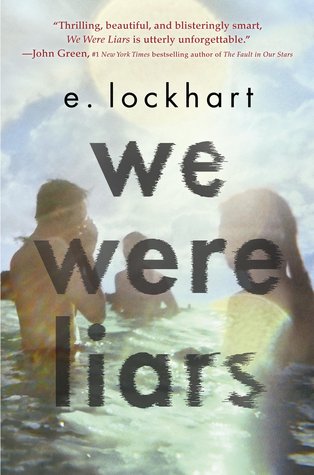
*Many Spoilers*
This is a book that depends on a twist, which makes it hard to talk about, how it succeeds or fails as a narrative structure without spoiling great swathes of the plot. So I'm going to spoil it with rather more abandon than I usually do. If you don't want to know what happens, stop reading now.
I am not an avid reader of young adult fiction. I don't avoid it, but I rarely find books that strike a deep chord with me in that particular genre. Unfortunately, this book gets firmly put on that pile. In chatting online about one of the issues with friends yesterday, I started to think through what the book does, and why in the end, I think it does them badly.
First, this book is all about the twist ending. It's what you hear in the advance buzz. I think it's mentioned on the inside cover. The twist ending is the thing. However, I tend to only like twist endings when they a) feel inevitable given what has gone before and b) if the book works perfectly well if you know what the twist ending is in advance, and get to appreciate what the author is skillfully doing maneuvering you towards that end.
In other words, twists can be fine, but if they're all you got? It ain't enough.
That's one problem with this book. Other than the twist, there isn't that much here. The other is that this is all about rich people problems. Which is not to say I don't think rich people don't have problems, but when they're taken out of socioeconomic context and simply revolve around us feeling bad for people who own their own private island with four mansions/larger houses for summer living, in addition to everything else, and how difficult their lives are...I really do find it difficult to care.
Particularly, once I started to think about it, the story really isn't about who the story is about. As written, this is about four young people (mostly cousins, with one Indian-American friend) trying to stay close while their families are being pulled apart. This doesn't work for two reasons.
First, because the author is so trapped by needing that twist ending, we really don't get much of the sense of the families being pulled apart, of the internecine battles over inheritance. We don't get the conflict, and therefore there is no build to the twist at the end. It feels toothless, and leads not to a gasp but rather to a moment of "why the fuck would they ever have wanted to do that?" You cannot wait until the last thirty pages to tell us "oh, and the mothers of these children had been fighting between themselves all summer and making everything miserable" and still have it have the punch, or more specifically, the slow burn, that would then make that ending at least understandable.
*Twist Spoiler*
The four kids set fire to their grandfather's mansion on the island two years ago. Three of them died. They're present all book, but they seem to be ghosts or hallucinations.
You need the build-up to that act to make it make sense. Leaving that out? Nonsensical.
Secondly, this means that the real story is about the parents, not the kids. We don't get to see the hard times the kids are going through, and really, it doesn't seem to be that bad. They're literally a year away from college and getting to live their own lives, and we don't get a keen sense other than that their mothers think the inheritance is important. But not too much of that, because it might give away the twist. (See above, re: not letting the audience know what the fuck is going on.)
If this is actually a story of rich people being so dependent on their parents that they never have learned any skills or abilities and then being threatened with that being pulled away by an increasingly senile adult, why wouldn't you focus on that? In other words, if you want to King Lear the shit out of this, don't you think that maybe that's where the story is?
If this is actually a story of rich people being so dependent on their parents that they never have learned any skills or abilities and then being threatened with that being pulled away by an increasingly senile adult, why wouldn't you focus on that? In other words, if you want to King Lear the shit out of this, don't you think that maybe that's where the story is?
I know, then it wouldn't be YA, but seriously. Make your main conflict affect your main characters. This doesn't seem like rocket science.
And then we get to the amnesia. The remaining teen has amnesia around setting fire to the house. It's the most peculiar fucking amnesia in the world, in that not only has she blocked out a traumatic event (maybe, but dicey), but her amnesia is SO selective that every time someone tells her what happened, she forgets THAT AND ONLY THAT. Wow, memory does not work that way. (Hence why she doesn't realize her cousins aren't real? I guess? We're never led to believe that persistent hallucinations are really a problem.)
You know what? I was in an explosion when I was young. I don't remember every moment of it. But there was never a time where I forgot that I'd just talked about it with someone. EVER.
So what we have here are rich people problems without context, a withholding of plot until the twist ending, a story that has its main conflict not affect its main characters, and amnesia that is a plot contrivance in the worst possible way. All hanging on a twist ending that does not redeem the rest.
No comments:
Post a Comment